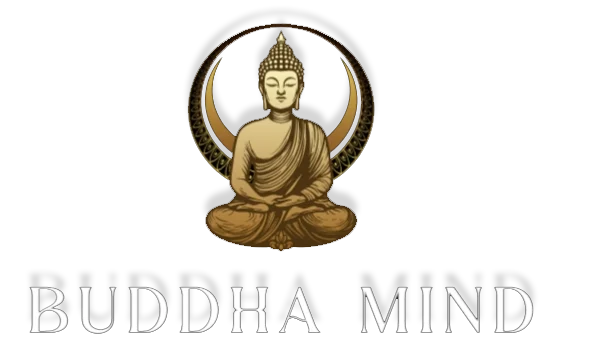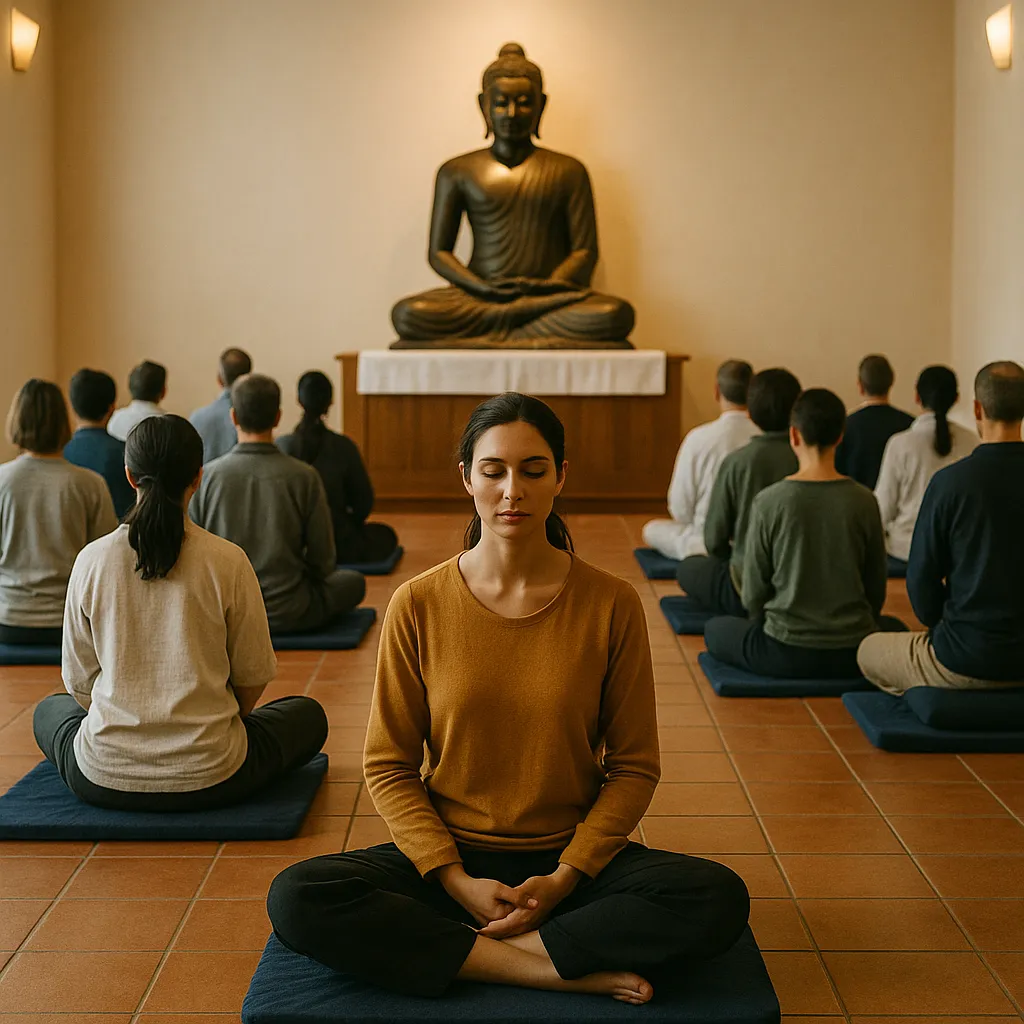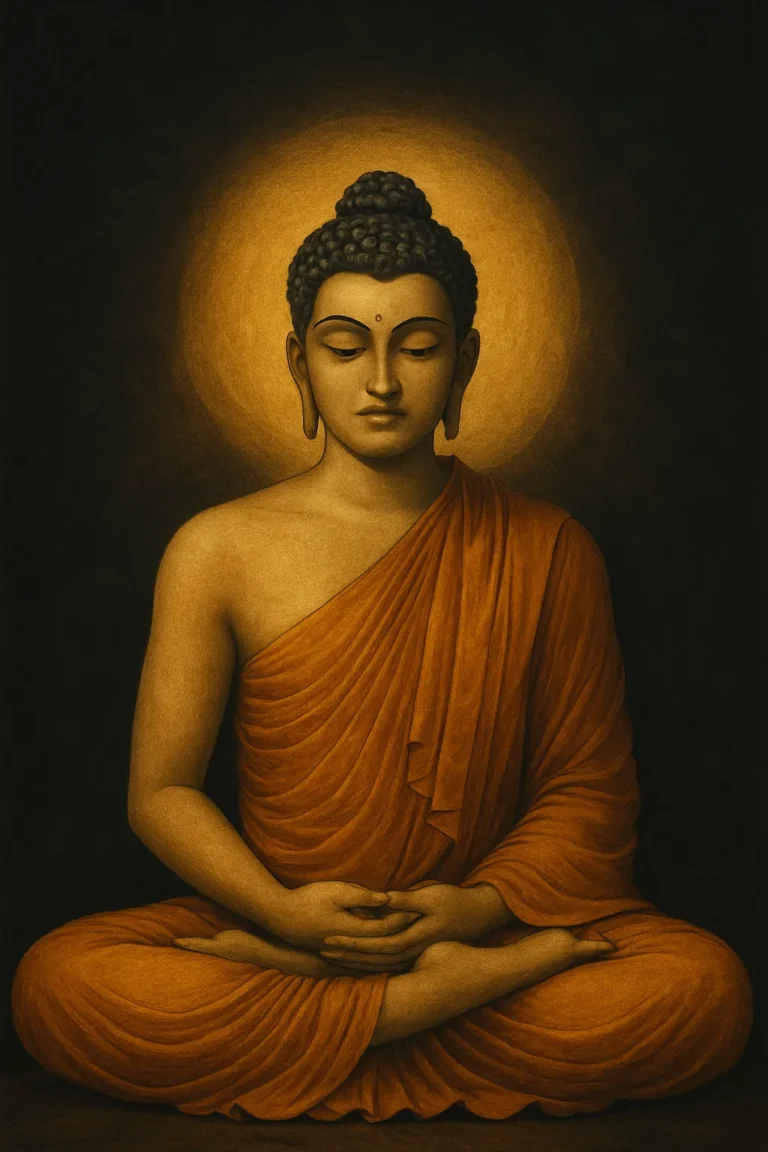What Happens During a 10-Day Vipassana Meditation Centre Course?
A 10-day Vipassana meditation course is more than just a silent retreat — it is a disciplined journey of mental purification rooted in ancient practice. Developed and taught by S.N. Goenka, this method offers a secular and practical approach to insight meditation, open to all regardless of religious background.
The Core Structure of a Vipassana Retreat
Each Vipassana course follows a consistent format across all certified vipassana meditation centres. Participants spend ten full days in residential silence, engaging in structured meditation sessions under the guidance of an assistant teacher trained in S.N. Goenka’s lineage.

Rules and Environment
From the moment the course begins, students enter a deliberately isolated environment:
- No mobile devices or books
- No talking, writing, or external communication
- No religious rituals or other forms of spiritual practice
Instead, students follow a strict Code of Discipline, which includes refraining from:
- Killing any living being
- Stealing
- Sexual activity
- False speech
- Intoxicants
These rules calm the mind and create the ethical foundation for meditation.
Meditation in Three Phases
The course unfolds in three key stages:
- Sīla (Moral Conduct):
Students first stabilize behavior through ethical restraint. This clears the path for inner observation. - Samādhi (Mental Concentration):
By focusing attention on the breath (Ānāpāna), the mind becomes sharper and more stable. This phase lasts until Day 4. - Paññā (Wisdom through Insight):
Once concentration deepens, students begin Vipassana proper: observing bodily sensations with equanimity. This self-examination helps break the automatic patterns of craving and aversion.
Each evening concludes with a recorded discourse by S.N. Goenka, explaining the theory behind the day’s practice.
Final Day: Sharing the Benefits
On Day 10, the final full day, students learn Mettā Bhāvanā — the meditation of loving-kindness. This cultivates goodwill and extends the mental purity developed during the retreat to all beings.
Comparison of the Three Training Steps in Vipassana
| Step | Pali Term | Practice Focus | Purpose |
|---|---|---|---|
| Moral Conduct | Sīla | Ethical restraint | Calms the external life |
| Concentration | Samādhi | Mindfulness of breath | Sharpens mental focus |
| Wisdom | Paññā | Observation of body sensations | Develops insight and equanimity |
The Teacher Behind the Method: S.N. Goenka
S.N. Goenka (1924–2013) was a Burmese-Indian lay teacher authorized by Sayagyi U Ba Khin. In 1955, Goenka attended his first course in Rangoon. Captivated by the clarity and universality of the method, he spent 14 years studying under Sayagyi’s guidance.
Goenka began teaching in India in 1969, eventually founding the Vipassana International Academy in Igatpuri. Over the decades, he trained hundreds of assistant teachers and established more than 170 centres globally.
Crucially, he emphasized non-sectarianism, accessibility for householders, and the scientific nature of the practice. Goenka’s discourses — now central to every course — blend Buddhist wisdom with practical psychology and neuroscience.
He also founded the Vipassana Research Institute, which publishes the complete Pāli Tipiṭaka and supports studies on the psychological and societal benefits of meditation.
Who Can Attend a 10-Day Vipassana Course?
Vipassana is open to adults of all backgrounds, but there are minimum age requirements depending on the type of course. For the standard 10-day program, a participant must be at least 19 years old. However, there are specially adapted courses for:
- Teenagers (15–19 years old)
- Children (10–17 years old)
These shorter courses follow the same ethical principles but are presented in age-appropriate formats.
Course Charges and Funding
One of the most striking aspects of any vipassana meditation centre is that no one pays to attend the course—not even for food or lodging.
Vipassana is offered as Dhamma Dāna, or the gift of truth.
- No instructors or managers receive payment.
- All expenses are covered by voluntary donations from past students.
- New students can only donate after completing a course, should they wish to help someone else benefit in the future.
This approach ensures the technique remains free of commercial interests and is taught in its original, unaltered form.
How to Apply for a Vipassana Course
The process to enroll in a Vipassana retreat is clear and well-organized. While it may vary slightly by region, the main steps are:
- Read the Code of Discipline
It’s mandatory to review this carefully, as adherence is crucial to course participation. - Choose a Vipassana Meditation Centre
Select a location and date that suits your availability. Many centres offer schedules months in advance. - Submit an Application
There are three ways to apply:- Online (recommended): Fill the form directly via the centre’s website.
- Email or Fax: Download and send a completed application.
- Post/Courier: Physical submission, if digital access is limited.
- Wait for Confirmation
Centres notify applicants via email or phone, and accepted students receive a unique confirmation number. - In Case of Cancellation
If you are unable to attend after confirmation, it’s vital to inform the centre immediately—even on the day of the retreat—so another student may take your place.
This disciplined yet compassionate system ensures smooth management for centres that operate entirely through voluntary contributions.
Tangible Impacts on Participants
Many who attend a 10-day course report it as transformative, but the deeper effects emerge gradually through sustained practice.
Some commonly reported changes include:
- Improved concentration and emotional balance
- Increased compassion and reduced reactivity
- Greater efficiency in work and decision-making
- A natural shift towards ethical behavior and inner calm
Vipassana is often summarized as a method of “knowing yourself by yourself, for yourself.” It emphasizes personal experience over ideology, making the benefits more durable and internalized.
In time, practitioners notice jealousy turning into sympathetic joy, pride giving way to humility, and anxiety being replaced by equanimity.
Real-World Applications
The spread of Vipassana has extended well beyond retreat centres. Courses are now offered in:
- Prisons, helping inmates reduce aggression and recidivism
- Schools, as part of ethical education
- Corporate settings, to promote ethical leadership and mental clarity
- Public health studies, examining its effects on anxiety and depression
The Vipassana Research Institute continues to document these impacts, and its archives now serve scholars, mental health professionals, and policy-makers alike.
Why Vipassana Meditation Centres Continue to Grow
The global presence of Vipassana meditation centres reflects not only the strength of the tradition but also the relevance of its message: liberation through observation and discipline. With over 170 centres operating worldwide, new generations are learning that mindfulness, ethics, and insight can coexist without dogma.
These centres stand out in the modern world for their unique offering:
- Ancient teachings preserved with precision
- A complete experience of silence and introspection
- A gift-based system sustained entirely by gratitude
Through this model, the practice remains accessible to everyone—from high school teachers and office workers to monks and retirees—each united by the search for inner peace.







